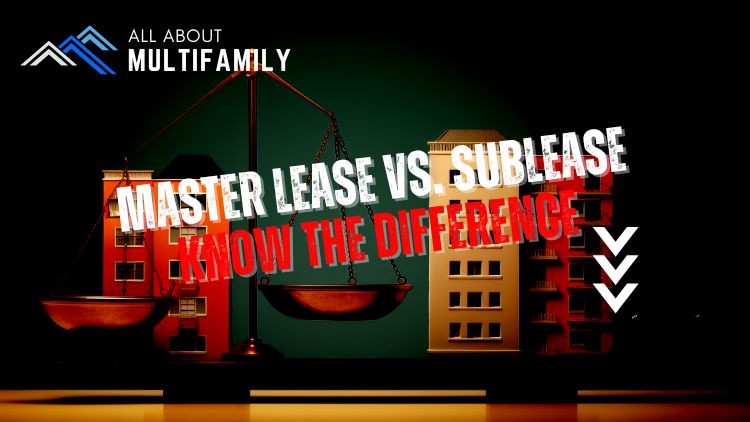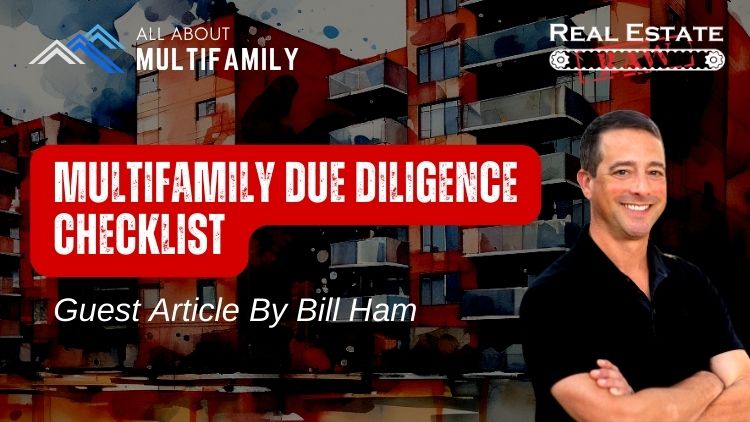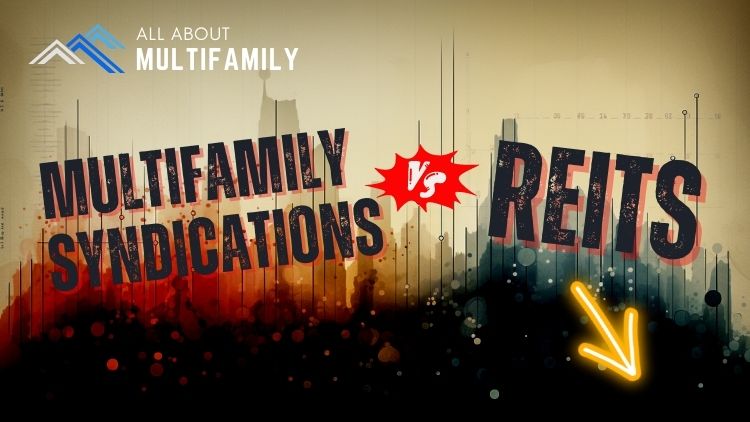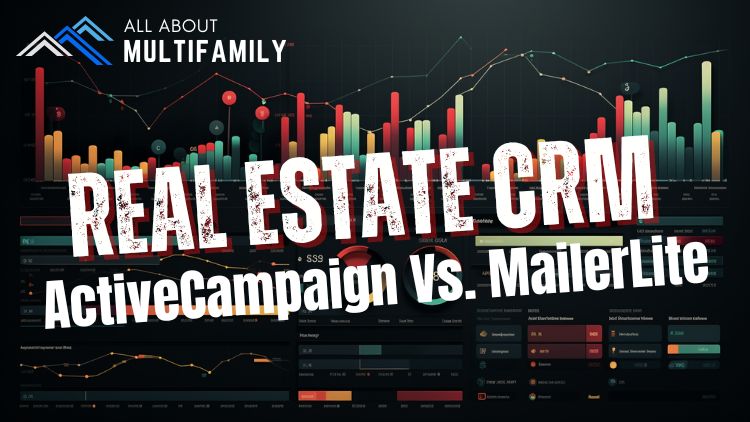By Bill Ham, Founder & Author – Creative Cash & Real Estate Raw
Due diligence for a multifamily creative financing deal goes beyond just the physical property itself. The type of creative financing you are getting will dictate how you do your due diligence. Start with the seller and the documents behind the deal and then move on to inspect the property.
The Mortgage
The first item to request from the seller is the mortgage information. This is crucial if you are doing a master lease option. A seller cannot give you interest in a property that they don’t have. If a seller only has 2 years left on the existing mortgage, you will not want to sign a master lease option for 5 years. They are giving you 3 years that do not technically exist.
The seller can refinance the deal (hopefully) at the end of the 2 years but if that doesn’t go as planned, your master lease option may become worthless after the first 2 years. If you are going to do seller financing on a property and you find that the seller has a mortgage in place, your downpayment would need to be equal or greater than the loan that the seller has in place. A seller cannot really finance a deal to you when they still have a mortgage in place.
Don’t get me wrong here. I am not saying that this isn’t done. It’s done all the time but it’s not a good idea. The seller can’t give you title to the property because they don’t have one to give you. The lender has the title. When a seller gives you financing and has financing in place this is known as a “wrap” or “subject to” financing. You are wrapping your mortgage around the existing mortgage, or you are taking the property over “subject to” the existing financing.
I don’t care for either of these situations personally. It can trigger what is known as a “due on sale” clause that will be in the lender’s mortgage with this seller. It states that if the property is “sold,” the proceeds are due immediately to the lender. Your “wrap” financing can trigger the lender to call the entire loan due immediately and your interest in the property will become null and void. The seller will then have to pay off the loan or go into foreclosure.
Most people will tell you that if you are making the payments to the lender then they will turn a blind eye to the situation. They may, but that is still too risky. If you want to do this type of financing, then I suggest you try to negotiate as little down payment as you can and use the existing loan to support your negotiation. If you do put down money, then try to recover the cash back through the income of the property ASAP. You will want to get it back in at least half the time you have the creative financing contract for.
If you still want to do a “wrap” or “subject too,” then I suggest calling up the lender and telling them that you are going to do this type of financing. If they put in writing that it is acceptable, then go for it. If they don’t give you permission to do it and you, do it anyway, then you’re responsible for any negative consequences.
Property
You will want to do a full inspection of the entire property as if you were going to buy it and pay all cash. Just because you may be getting a master lease or seller financing doesn’t mean you should slack in your physical due diligence. You will be operating the property and your cash flow will be contingent upon how well the property runs. If you don’t do a full inspection and find major repairs that need to be done after you complete the takeover, it will be your problem. Do a thorough inspection to know what you are getting into. You don’t want to see all your cash flow drained away by unexpected repairs (ask me how I know).
Walk every unit during your inspection. I can’t stress this enough. Don’t let the owner or current management keep you from any of the units no matter what the excuse is. The unit you don’t go in will be the one that is totally trashed!
Here are a few items to look for when doing your walk through.
- Exterior of building
- Look for moisture damage/wood rot.
- Look for any obvious drainage issues.
- Look at the roofs.
- Look at the HVAC unit (old is bad).
- Inside the units, check:
- Paint
- Carpet
- Appliances
- HVAC
- Electrical panel
- Lights and fixtures
In general, you are looking at the age and condition of these items.
Free Inspections
When I got started in the multifamily business, I didn’t have much cash to pay for inspections, so I brought my contractors with me when I did my due diligence walk through. Again, you can trade work for free estimates. Use the contractor bids for work as a game plan for going forward with the deal.
After each contractor turns in their bids, you will know what needs to be done and how much it will cost. With this information you can then create a business plan to present to the seller that will help them to make the decision to give you a creative financing deal. This will also give you leverage for negotiating the agreement and the terms.
Due Diligence on the Owner
I would suggest doing some research on the owner or seller of any property. Remember that the “financing” in a creative financing deal is not just financing but a “partnership” of sorts. You and the seller will be doing business together over the term of the loan or agreement.
Do an internet search on the seller or their company. See if you find any previous or pending legal action, including lawsuits. Can you find any foreclosures or judgments against them? If you find anything like this, you may not want to get involved.
Past issues may represent a pattern. If your seller is sued or goes into foreclosure, it is not likely to involve you directly, but your contract may become null and void to a senior loan or lawsuit. Your only remedy would be to sue the seller yourself. By doing some research on the seller, you can skew the odds in your favor.
Taxes and Code Enforcement
I highly suggest contacting the code enforcement office that is local to the property you are getting creative for seller financing on. See if there are any outstanding code violations against the property. If there are, then find out what the remediation would be.
Make sure the property taxes are current. Call the county tax assessor’s office to confirm or have the seller provide you with proof of current payment.
Insurance
You may or may not need to get insurance. If you do a master lease option or partner with a seller, you will not need to get insurance on the property. If you are doing seller financing and you take possession of the property title, you will want to get your own insurance policy. If you are keeping the seller’s insurance in place, you will want to get a copy of the policy as one of your due diligence inspections.
Make sure the insurance is current and in place. If you do a master lease option, then you will want to be listed on the owner’s policy as an “additional insured.” You can request this directly from the insurance company and don’t have to go through the owner to do this.
Being listed on the policy shows you have an interest in the property. It does not alter the coverage but does keep you in the information loop. It will keep you notified that the property is covered; if the policy lapses or is canceled, you will know that too. You should be making payments to the insurance (taxes and mortgage) from your 3rd party escrow account, as discussed earlier, but this is an additional layer of protection for you.
Clear title
Another level of due diligence and security that you can put in place would be to have an attorney do a title search on the property prior to the execution of your creative financing for multifamily. The point of this is to find out if there are any other liens against the property that the seller has not disclosed to you. This could be a “journeyman’s lien” or a lien placed by an unpaid contractor. This could be any form of legal judgment against the seller, such as unpaid taxes. This list is endless, so have your attorney check out the title.
Physical Inspection
When you do a property inspection, you will want to walk the entire property, including all of the units. ALL OF THE UNITS! Don’t let the realtor or manager keep you from entering any unit on the property. If you can’t get into a unit on the day that you do your physical inspection, then set a time to come back and visit the units you didn’t get in.
I have had to threaten to cancel an offer because I was not given access to a unit on a property. The management kept giving me excuses as to why I couldn’t enter the unit.
I made this the seller’s problem by telling them that if their management didn’t give me access to the unit, I would cancel my offer. The owner got involved and we found out why I was not being given access. The manager had charged the owner for repairs to the units that were never completed. The unit had a fire and was in bad shape. The owner was under the impression that the job was completed, but it was not.
This was the seller’s problem, and I got a discount on the price. If I had closed the deal without getting access to the unit, it would have become my problem. If you are not skilled in the physical repair aspect of this business, I suggest paying an inspector to do the walk-through. If you pay an inspector to do the inspection, I suggest you walk with them as they do the work. This will give you an opportunity to get to know the property and to learn what this professional inspector is looking for. You will get a property condition report from an inspector, but there is no replacement for seeing it firsthand.
Things to keep in mind as you do a physical inspection is that you will likely be responsible for the condition of this property once you enter the master lease option. You will need to do repairs and deal with deferred maintenance with the income that the property produces. Deferred maintenance and repairs can kill a budget, so make sure you are realistic when you do your due diligence walk-through. Taking care of old repairs and bringing a property back to good condition is a great way to bring value to a deal or to get a seller to accept a master lease option offer. Be careful to make sure that the property can financially support the repair cost. Here are some areas to look for when doing a property inspection:
1. General condition of the property. Pretend you are a renter about to lease a unit at this property. What sort of “feeling” does the condition of the property give you? Would you want to live there?
2. Roofs. These can be awfully expensive to replace. Check the roof condition of each building. If you have bad roofs, you will never get control of your maintenance expenses.
3. Siding. Look at the exterior of the buildings. If there is a lot of wood structure on the property, check for rot. If you see a lot of wood rot on the property, such as siding or balconies, this can be expensive, too.
4. Appliances. Are they new or old? Appliances can rent or not rent a unit. Old appliances make a unit much less desirable to a good tenant and will need replacing soon.
5. Landscape. Landscaping is where your curb appeal starts. Good landscaping can also help prevent crime and vandalism. This is not something that can be statistically proven, but I have found that if you let the landscaping get out of control, the surrounding neighborhood will treat your property accordingly. There is less loitering and crime when a property looks like someone cares about it, and more when it looks like someone doesn’t care.
6. HVAC. Your heating and air conditioning units need to be assessed for age and condition. There have been recent changes to the regulations regarding the type of new HVAC systems that are being sold, and they don’t tend to fit with older models. My point is, with these new regulations, a repair may turn into a full replacement if you need new parts that are not compatible with older models. If you see that the HVAC systems are older, plan for a higher replacement budget.
7. Plumbing and electrical. This is an area in which you can incur some high costs, and it is also the hardest to inspect in a general walk-through. You will want a professional to look at these systems for you.
Tip: I bring in my electrician and plumber when I do a property walk-through. I get them to look at these systems for me, and they do it for free. The deal I have worked out with them is that if they give me an idea of the condition of these systems and do this inspection for free, I will guarantee that they will get the future work at the property. I also do this with my roofer.
Lease Audit
This is the second part of a property inspection. You will want to review the leases that the owner/management has on file to verify the data that you were given when you made the offer. If you are doing a lease audit on a small property or a house, this is quite simple. If you are doing an audit on a larger apartment complex, then you may want to do a sample audit.
I suggest taking every third lease to inspect. If you find discrepancies, you will need to go back and do every file. In a lease audit, you are checking to see if the lease that the tenant signed matches the rent roll you were given when you made your initial assessment of the property. Look for is the amount of rent on the lease. Does it match? Has the management or owner given any concessions, such as free rent or discounts that you were not aware of? Look at the move-in dates and lease term to make sure they match. If there is ever a dispute with a tenant, the lease with their signature is what will hold up, not what the seller told you. This is why it is important to review the leases and make sure they are legitimate and signed by a real person.
Financial Audit
By now, you have already received the financial statements (T-12) for the property. Now it’s time to make sure the data is real. It is rare, but people can create a set of financials to represent whatever they want. Income numbers can be completely faked, so what you need to do is to request a tax return for the property. If the person files the property tax return as their own, they may not want to give you all this information. Request that they pull out the property portion of their return and give you that.
Another way of proving a property’s income is to see a bank statement showing that deposits have been made for the property each month. Your goal here is to verify that the property is putting in the bank the same amount of money that the seller is telling you that it collects. I have never found an owner who creates a false set of books to sell a property, but it could be done, so I always verify the income with a tax return or bank statement. This due diligence item must be completed before you give the seller any earnest or option money.
Management Due Diligence
This is where you will want to interview the management at the property, assuming there is any. Your goal here is to decide whether to keep the current management and to find out if they even plan to stay. Some management will quit when a property is taken over by a new owner. This should be figured out early in the due diligence process to give you as much time to plan for any upcoming changes.
You should plan to conduct a formal interview with the main management company, as well as each individual working on the property. Some things that you will want to discuss are their salaries and bonus structure. You want them to be paid well but not too much. Also look to see if the property is under- or over-staffed. Remember that properties are often over-staffed and reducing the payroll can be a value play for the property.
Do a full review of their policies and leasing practices, including how they screen tenants. In one case, I found a low-income property where the owner hired a local management company to run the property. The management company normally operated nice, new, A-class properties. The management had set the screening requirement too high for the tenants for that level of property. They were running it as if it were one of their nice, new properties and were screening the tenants in the same manner. The occupancy was dropping sharply because they were requiring too high of a credit score for the average tenants that would live in that area. As usual, the owner was the one paying the price in the end. Make sure your management is leasing and operating according to the appropriate asset class for that property.
Also ask the manager on site about unpaid contractors. Ask them how the property’s relationships are with the local contractors. What I have found is that sometimes managers are slow to pay contractors, or they have a lot of outstanding invoices from contractors and suppliers for the property. Unpaid contractors will not show up to do work for the property. They tend not to care or notice when a property changes hand. All they will remember is that they were not paid. The relationships and reputation that a property has with its suppliers and contractors will tell you a lot about how the current management has been running the property.
The last master lease option I did on a large property came with $50,000 in unpaid invoices owed to local contractors from the old management company. I knew this going into the deal, but if I did not know about the unpaid invoices beforehand that would have been a nasty surprise.
Seller Due Diligence
Check on your seller as much as you can before entering any creative financing deal with them. Especially a master lease option. I am not suggesting that you hire a private detective to sit outside their house, but I am suggesting that you at least do an internet search on them to see what can be found. What you are looking for is bankruptcies or any form of pending legal action. If you find bankruptcies or past legal troubles, you may want to be careful about entering into any agreement with them.
You might be surprised how much information is in the public domain. It pays to check them out. You may be getting a good deal with creative financing, but you are also making an investment in their property with your time, energy, and possibly money. Don’t invest blindly. Know who you are doing business with.
Title Check
It would be a good idea to pay an attorney to do a title check on the property. This is usually not that expensive. A title check proves that the owner is the owner on record and does have the right to enter into the seller financing for master lease option contract with you. Again, I have never seen a seller try to rip someone off like that, but it is good to be safe. Trust, but verify.
A title check would also show any outstanding liens that may be on the property. This would let you know if there was a contractor who had not been paid and had placed a lien against the property or any liens that the seller may not have admitted to or even known about.
Code Enforcement
I like to give a call to the local code enforcement office to check for any code violations on the property. The office will tell you if there are any outstanding code violations. This will be important because if a property is not up to code, the owner is responsible for bringing it up to code at their expense. As the holder of the creative financing contract, you may have to deal with the code violations, which could unexpectedly cut into cash flow.
Legal Review
This is arguably the most important due diligence item. You will need to have a local attorney create or review all documents pertaining to the deal, especially the master lease option contract. It is particularly important to have an attorney in the state in which the deal is being conducted review the documents. Each state can have differing laws that govern such contracts. Therefore, you want an attorney local to the deal to review or create the documents.
One of the biggest risks of doing a master lease option deal is that you are not the owner on record. The owner may be sued or go into foreclosure. You would be relatively powerless to stop this. What I suggest is having your attorney create some clauses in the master lease document that penalize the seller if this were to occur. These clauses are called “remedies.” They will not stop the legal action against the owner of record, but they will give you the right to act against the seller if they are sued or go into foreclosure.
Your attorney will give you the actual verbiage, but what the remedies should do is to make the seller repay the option money to you immediately if the title becomes encumbered through no fault of your own during the period of your master lease. If the property title becomes encumbered, then this verbiage will give you the right to take legal action against the seller to recover your option money.
I strongly suggest getting legal counsel for each deal that you do because the risks can change with each deal. There is little you can do to totally avoid risk, which is why you need to be counseled for each individual deal.
For more articles like this check out my site www.realestateraw.com.
Best of luck!
Bill Ham


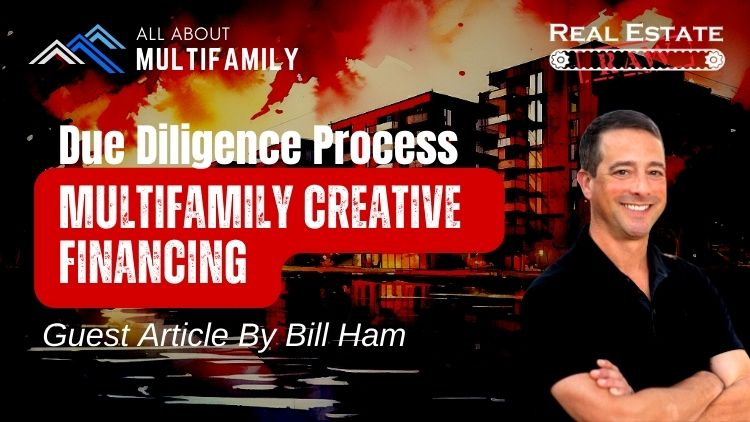

































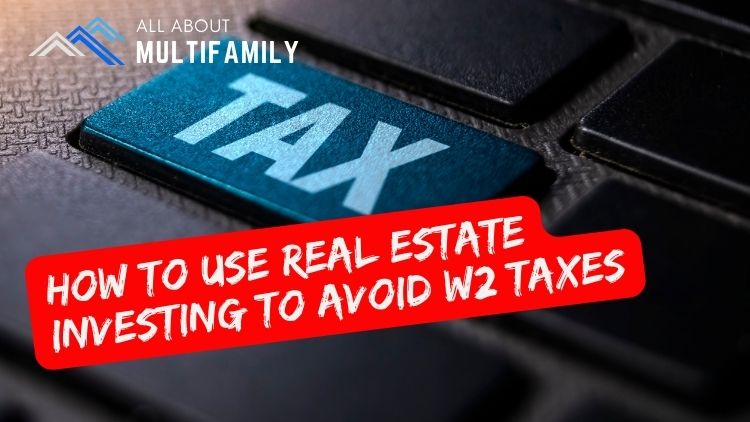









![An In-Depth Look at Jake and Gino's Coaching Program [A Review]](https://allaboutmultifamilyinvesting.com/wp-content/uploads/2023/10/AAM-BMP-Blog-Covers-750-×-422px-6.jpg)


![Email Marketing Tips for Multifamily Real Estate Syndicators to Raise Capital [Templates included]](https://allaboutmultifamilyinvesting.com/wp-content/uploads/2023/09/AAM-BMP-Blog-Covers-750-×-422px-4.jpg)






![The Richest Kids In America [Book Review]](https://allaboutmultifamilyinvesting.com/wp-content/uploads/2023/09/AAM-BMP-Blog-Covers-750-×-422px-84.jpg)


